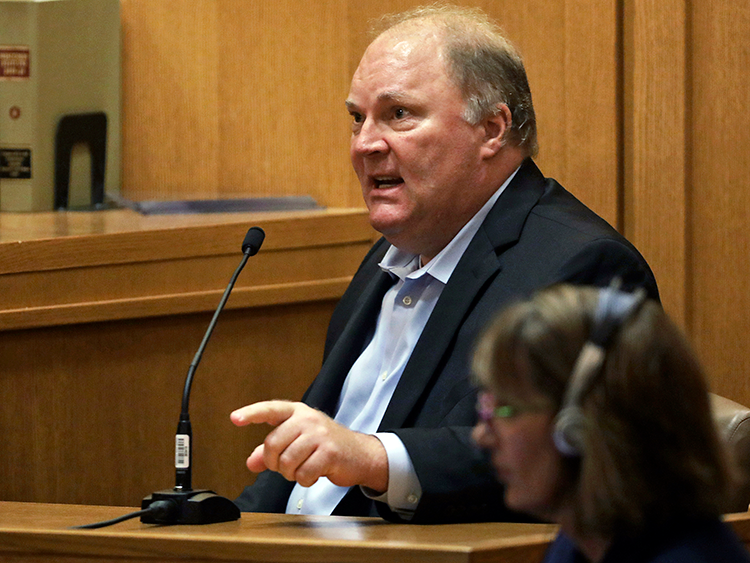Common Trust Creation Errors You Can Avoid

Creating trusts can be an important estate planning tool. They offer a seamless method to manage and transfer your assets, while avoiding probate. Unfortunately, many people make critical errors that can undermine the advantages of having a Trust. These mistakes, whether due to poor planning or lack of legal guidance or a simple oversight, can lead to complications, increased cost and unintended effects for beneficiaries. The best way to avoid costly mistakes is to work with an experienced estate planner during the creation of your Trust. To avoid making these mistakes, it is helpful to understand them. The Indianapolis attorneys at Frank&Kraft have compiled a list of common trust mistakes that you can avoid. It is not enough to simply draft a trust document; assets must also be retitled under the trust’s name. A trust is only effective if it actually holds assets. This means that real estate deeds, bank accounts, and investment accounts must be updated to reflect the trust as the owner. A trust is only effective if it actually holds assets, which means real estate deeds, bank accounts, and investment accounts must be updated to reflect the trust as the owner.
Appointing the Wrong Trustee
Another common error is choosing the wrong Trustee or failing to name a successor Trustee. The person you choose to manage the trust must be organized, responsible, and capable of handling finances. Some people choose family members without considering their skills or willingness to serve. Some people fail to designate a replacement Trustee. This can lead to unnecessary court involvement when the original Trustee is no longer able to serve. A carefully chosen Trustee ensures that the trust is properly managed and that the Grantor’s wishes are carried out effectively.
Forgetting to Update Your Trust
Many individuals create a trust and then fail to update it as their circumstances change. Marriage, divorce, the birth of children, or grandchildren, as well as changes in financial standing should prompt a trust review. The trust can be a source of confusion if outdated beneficiary designations or provisions are not updated. Missing assets and irrelevant provisions can also cause disputes. Regularly reviewing and updating the trust ensures that it continues to reflect your current wishes and financial situation.
Misunderstanding the Tax Implications
Some people mistakenly believe that a trust eliminates all estate taxes and creditor claims. Certain types of trusts may provide tax benefits and asset-protection, but a standard revocable trust does not shield assets against creditors or eliminate estate tax. A lack of understanding these limitations can result in inadequate planning and leave heirs vulnerable. Consulting an estate planning attorney can clarify what a trust can and cannot do, allowing for better overall planning.
Overlooking the Needs of Beneficiaries
Failing to consider the needs of beneficiaries is another frequent oversight. Beneficiaries may not have the same level of financial responsibility or habits. Some people may have difficulty managing their money, while others might need ongoing financial support. A properly structured trust can include provisions for staggered distributions, spendthrift protections, or a Special Needs Trust to ensure that beneficiaries receive their inheritance in a way that best suits their circumstances.
Trying to Go It Alone
Some people attempt to draft their own trust using online templates, believing it will save time and money. These do-it yourself options may appear appealing, but they often fail to take into account state-specific laws, complicated family dynamics, and unique financial situations. Working with a qualified estate planning attorney ensures that the trust is legally sound and customized to meet specific needs. Working with a qualified estate planning attorney helps ensure the trust is legally sound and customized to meet specific needs.
Failing to Coordinate Your Trust with Other Estate Planning Documents
Neglecting to coordinate a trust with other estate planning documents is another common mistake. A trust should be coordinated with a Last Will & Testament, Powers Of Attorney, and beneficiary designations for financial accounts. Conflicts and inconsistencies may arise if these documents are not aligned properly, which could lead to legal challenges. Estate planning should be a comprehensive process where all elements work together to achieve the desired outcome.
Keeping Quiet about Your Trust
Another critical mistake is failing to communicate the existence of the trust to key individuals. A trust can provide privacy, but those involved in the trust should know their roles. The Trustee, the successor Trustees and key family members need to have access to information that will help them carry out their duties. Join us for a FREE seminar to learn more about how we can help you avoid costly mistakes during the creation of a trust. To avoid costly mistakes when creating a trust, please contact the experienced Indianapolis estate planners at
Frank & Kraft
or call
(317) 684-500
for an appointment. Mr. Kraft’s primary areas of expertise are estate planning and administration. He also assists clients in Medicaid planning, federal, state, and corporate taxation. Latest Posts by Paul A. Kraft Estate Planning Attorney (see all)






